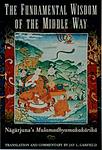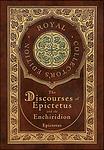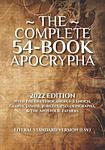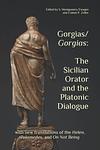The Greatest Latin, Multiple "Ancient Literature, Nonfiction" Books of All Time
Click to learn how this list is calculated.
This list represents a comprehensive and trusted collection of the greatest books. Developed through a specialized algorithm, it brings together 305 'best of' book lists to form a definitive guide to the world's most acclaimed books. For those interested in how these books are chosen, additional details can be found on the rankings page.
Genres
Ancient Literature refers to the body of written works produced during the earliest periods of human history, typically up until the fall of the Roman Empire in the 5th century AD. This category encompasses a diverse array of texts, including religious scriptures, epic poetry, philosophical treatises, historical accounts, and dramatic plays, originating from various civilizations such as the Sumerians, Egyptians, Greeks, Romans, Chinese, and Indians, among others. Notable works within this genre include the "Epic of Gilgamesh," Homer's "Iliad" and "Odyssey," the plays of Sophocles and Euripides, the philosophical writings of Plato and Aristotle, the "Mahabharata" and "Ramayana" from India, and the foundational texts of Confucianism and Taoism in China. Ancient literature provides invaluable insights into the thoughts, beliefs, and cultural practices of early societies, and continues to influence modern storytelling, philosophy, and ethics.
Countries
Date Range
Reading Statistics
Click the button below to see how many of these books you've read!
Download
If you're interested in downloading this list as a CSV file for use in a spreadsheet application, you can easily do so by clicking the button below. Please note that to ensure a manageable file size and faster download, the CSV will include details for only the first 500 books.
Download-
1. Treatises On Friendship And Old Age by Marcus Tullius Cicero
The book comprises two philosophical essays that delve into the nature and significance of friendship and the challenges and wisdom of old age. The first essay explores the meaning of true friendship, its role in society, and its importance as a foundation for moral and happy life, emphasizing mutual respect, virtue, and genuine affection. The second essay addresses the concerns of aging, arguing against the common perceptions of old age as a miserable phase. Instead, it presents old age as a period capable of great mental and intellectual activity and satisfaction, provided one has lived a life based on virtue and fulfillment. Through these essays, the text provides timeless insights into handling some of life's most profound transitions with grace and wisdom.
The 3791st Greatest Book of All Time -
2. Epistles by Horace
"Epistles" is a collection of poetic letters offering insights into the human condition, moral philosophy, and the art of living well. Written in the first century BCE, the work reflects the author's mature thoughts on various subjects, ranging from personal ethics to literary criticism. Through these letters, the poet shares his wisdom with friends and notable contemporaries, employing a conversational tone that blends humor, irony, and sincerity. The epistles serve as a guide to practical wisdom, emphasizing moderation, self-awareness, and the importance of living in harmony with nature and society.
The 4151st Greatest Book of All Time -
3. Satires by Horace
"Satires" is a collection of poetic essays that delve into the follies and vices of Roman society during the first century BCE. Through a series of witty, critical, and often self-deprecating poems, the author explores themes such as greed, corruption, and social ambition, while advocating for a life of moderation and philosophical contentment. Employing a conversational tone and a keen eye for the absurd, the work satirizes the behaviors of both the elite and the common people, offering a timeless reflection on human nature and the pursuit of happiness.
The 4151st Greatest Book of All Time -
4. The Fundamental Wisdom Of The Middle Way by Nagarjuna, Jay L. Garfield
"The Fundamental Wisdom of the Middle Way" is a philosophical text that explores the Buddhist concept of emptiness and the nature of reality. The work is a verse-by-verse commentary on the challenges and questions pertaining to conventional existence and ultimate truth, aiming to resolve the dichotomies and contradictions inherent in ordinary experience. Through rigorous argumentation and logical analysis, the text deconstructs the assumptions of inherent existence in phenomena, proposing instead that all things exist interdependently. This exposition not only deepens the understanding of Buddhist philosophy but also offers insights into the nature of suffering and liberation.
The 4688th Greatest Book of All Time -
5. De Anima by Aristotle
"De Anima" is a foundational philosophical treatise that explores the concept of the soul and its relation to the body. The work delves into the nature of life itself, categorizing different kinds of souls possessed by different kinds of living things, such as plants, animals, and humans. It discusses the faculties of the soul, including the nutritive, perceptive, and intellectual aspects, and investigates their functions and interactions. The treatise also examines issues of perception, cognition, and memory, arguing that the soul is the principle of life and the source of all vital functions, ultimately aiming to define the essence of life and the basis of all living activities.
The 4688th Greatest Book of All Time -
6. Enchiridion Of Epictetus by Epictetus
The book is a concise manual of ethical advice compiled by Arrian, a student of the Stoic philosopher Epictetus. This practical guide provides philosophical teachings on how to live a virtuous life, emphasizing the importance of personal freedom and the control of one's emotions. It advocates for focusing on what is within one's power—distinguishing between what one can change and what one cannot—and stresses the significance of developing resilience to external circumstances. The text is foundational in the discipline of Stoicism, offering insights into achieving peace of mind and living in harmony with the natural world.
The 6745th Greatest Book of All Time -
7. The Apocrypha by Unknown
"The Apocrypha" refers to a collection of ancient Jewish writings that are included in some versions of the Bible, particularly in the Septuagint and the Latin Vulgate, but are not considered canonical by all Jewish and Christian traditions. These texts include a variety of genres such as historical narratives, wisdom literature, additions to canonical books, and apocalyptic visions. They provide valuable insights into Jewish thought and practice during the Second Temple period and are revered in some Christian denominations for their historical and spiritual significance, despite their varying levels of acceptance across different religious communities.
The 7168th Greatest Book of All Time -
8. Satires by Persius
The book is a collection of six satirical poems written in Latin, which delve into the moral and philosophical concerns of the author's time. Through sharp wit and a penetrating critique of contemporary Roman society, the author exposes the vices and follies of his peers, particularly targeting the corruption, greed, and hypocrisy that he perceives. The work reflects Stoic philosophical ideals and emphasizes the importance of virtue, self-awareness, and the pursuit of wisdom over material wealth and superficial success. Despite its serious themes, the book is known for its poetic artistry and the clever use of language to convey its biting commentary on the moral decay of society.
The 7168th Greatest Book of All Time -
9. Satires by Juvenal
"Satires" is a collection of poetic essays from ancient Rome that offer a scathing critique of the social and political landscape of the time. The work delves into the corruption, decadence, and moral decay of Roman society, using biting wit and a satirical tone to expose the vices and follies of its citizens and leaders. The author employs a range of literary devices, from irony to hyperbole, to lambast the greed, hypocrisy, and depravity he perceives, while also reflecting on human nature and the challenges of living a virtuous life amidst widespread societal failings. The text is not only a commentary on the specific historical context but has also been interpreted as a timeless exploration of the human condition.
The 7168th Greatest Book of All Time -
10. Gorgias/Gorgias : The Sicilian Orator And The Platonic Dialogue by Coleen P. Zoller, Jurgen R. Gatt, S. Montgomery Ewegen
This book provides a comprehensive analysis of the Platonic dialogue centered on the figure of Gorgias, a renowned Sicilian orator and sophist. It delves into the philosophical conversations between Socrates and Gorgias, along with other interlocutors, exploring themes such as rhetoric, justice, and the nature of the good life. The text examines the intricacies of Socratic dialectic and the contrast between philosophical inquiry and the art of persuasion practiced by sophists. Through this exploration, the book sheds light on the enduring questions about the relationship between power, knowledge, and ethics in the context of human discourse and action.
The 10032nd Greatest Book of All Time
Reading Statistics
Click the button below to see how many of these books you've read!
Download
If you're interested in downloading this list as a CSV file for use in a spreadsheet application, you can easily do so by clicking the button below. Please note that to ensure a manageable file size and faster download, the CSV will include details for only the first 500 books.
Download







